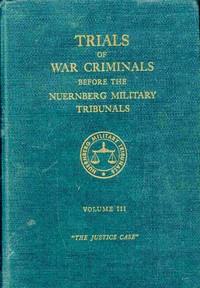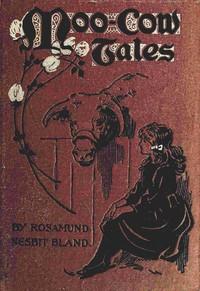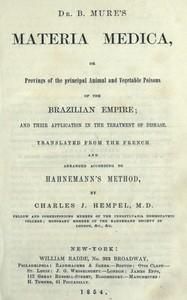|
|
Read this ebook for free! No credit card needed, absolutely nothing to pay.Words: 724486 in 235 pages
This is an ebook sharing website. You can read the uploaded ebooks for free here. No credit cards needed, nothing to pay. If you want to own a digital copy of the ebook, or want to read offline with your favorite ebook-reader, then you can choose to buy and download the ebook.

: History for ready reference Volume 5 Tunnage to Zyp and Supplement by Larned J N Josephus Nelson Reiley Alan C Alan Campbell Contributor - History Dictionaries@FreeBooksThu 08 Jun, 2023 o. Whether he did possess this strength was soon tested by a singularly rude trial. There can be no doubt that the foremost members of his cabinet, Seward and Chase, the most eminent Republican statesmen, had felt themselves wronged by their party when in its national convention it preferred to them for the presidency a man whom, not unnaturally, they thought greatly their inferior in ability and experience as well as in service. ... Seward, who, as Secretary of State, considered himself next to the Chief Executive, and who quickly accustomed himself to giving orders and making arrangements upon his own motion, thought it necessary that he should rescue the direction of public affairs from hands so unskilled, and take full charge of them himself. At the end of the first month of the administration he submitted a 'memorandum' to President Lincoln, which has been first brought to light by Nicolay and Hay, and is one of their most valuable contributions to the history of those days. In that paper Seward actually told the President that, at the end of a month's administration, the government was still without a policy, either domestic or foreign; that the slavery question should be eliminated from the struggle about the Union; that the matter of the maintenance of the forts and other possessions in the South should be decided with that view; that explanations should be demanded categorically from the governments of Spain and France, which were then preparing, one for the annexation of San Domingo, and both for the invasion of Mexico; that if no satisfactory explanations were received war should be declared against Spain and France by the United States; that explanations should also be sought from Russia and Great Britain, and a vigorous continental spirit of independence against European intervention be aroused all over the American continent; that this policy should be incessantly pursued and directed by somebody; that either the President should devote himself entirely to it, or devolve the direction on some member of his cabinet, whereupon all debate on this policy must end. This could be understood only as a formal demand that the President should acknowledge his own incompetency to perform his duties, content himself with the amusement of distributing post offices, and resign his power as to all important affairs into the hands of his Secretary of State. ... Had Lincoln, as most Presidents would have done, instantly dismissed Seward, and published the true reason for that dismissal, it would inevitably have been the end of Seward's career. But Lincoln did what not many of the noblest and greatest men in history would have been noble and great enough to do. He considered that Seward was still capable of rendering great service to his country in the place in which he was, if rightly controlled. He ignored the insult, but firmly established his superiority. In his reply, which he forthwith dispatched, he told Seward that the administration had a domestic policy as laid down in the inaugural address with Seward's approval; that it had a foreign policy as traced in Seward's dispatches with the President's approval; that if any policy was to be maintained or changed, he, the President, was to direct that on his responsibility; and that in performing that duty the President had a right to the advice of his secretaries. Seward's fantastic schemes of foreign war and continental policies Lincoln brushed aside by passing them over in silence. Nothing more was said. Seward must have felt that he was at the mercy of a superior man." UNITED STATES OF AMERICA: A. D. 1861 . Surrender of Alexander H. Stephens to Secession. His "Corner-stone" speech at Savannah. The following is from a speech made by Alexander H. Stephens at Savannah, on the evening after the secession of Georgia, which he had opposed, but to which he now yielded himself without reserve. It is a speech that became famous on account of its bold declaration that Slavery formed the "corner-stone" of the New Confederacy. "The new constitution," said Mr. Stephens, "has put at rest, forever, all the agitating questions relating to our peculiar institution--African slavery as it exists amongst us--the proper status of the negro in our form of civilization. This was the immediate cause of the late rupture and present revolution. Jefferson, in his forecast, had anticipated this, as the 'rock upon which the old Union would split.' He was right. What was conjecture with him, is now a realized fact. But whether he fully comprehended the great truth upon which that rock stood and stands may be doubted. The prevailing ideas entertained by him and most of the leading statesmen at the time of the formation of the old constitution, were that the enslavement of the African was in violation of the laws of nature; that it was wrong in principle, socially, morally, and politically. It was an evil they knew not well how to deal with, but the general opinion of the men of that day was that, somehow or other in the order of Providence, the institution would be evanescent and pass away. This idea, though not incorporated in the constitution, was the prevailing idea at that time. The constitution, it is true, secured every essential guarantee to the institution while it should last, and hence no argument can be justly urged against the constitutional guarantees thus secured, because of the common sentiment of the day. Those ideas, however, were fundamentally wrong. They rested upon the assumption of the equality of races. This was an error. It was a sandy foundation, and the government built upon it fell when the 'storm came and the wind blew.' Our new government is founded upon exactly the opposite idea; its foundations are laid, its corner-stone rests upon the great truth, that the negro is not equal to the white man; that slavery --subordination to the superior race--is his natural and normal condition. This, our new government, is the first, in the history of the world, based upon this great physical, philosophical, and moral truth. This truth has been slow in the process of its development, like all other truths in the various departments of science. It has been so even amongst us." UNITED STATES OF AMERICA: A. D. 1861 . The breaking of rebellion into open war by the attack on Fort Sumter. President Lincoln's statement of the circumstances. His first difficulties. Attitude of the Border States. The circumstances under which the first blow of the civil war was struck by the rebels at Charleston were recited by President Lincoln, in his Message to Congress, at the special session convened July 4, 1861; "On the 5th of March , a letter of Major Anderson, commanding at Fort Sumter, written on the 28th of February and received at the War Department on the 4th of March, was by that department placed in his hands. This letter expressed the professional opinion of the writer that reinforcements could not be thrown into that fort within the time for his relief, rendered necessary by the limited supply of provisions, and with a view of holding possession of the same, with a force of less than 20,000 good and well-disciplined men. This opinion was concurred in by all the officers of his command, and their memoranda on the subject were made inclosures of Major Anderson's letter. The whole was immediately laid before Lieutenant-General Scott, who at once concurred with Major Anderson in opinion. On reflection, however, he took full time, consulting with other officers, both of the army and the navy, and at the end of four days came reluctantly but decidedly to the same conclusion as before. He also stated at the same time that no such sufficient force was then at the control of the government, or could be raised and brought to the ground within the time when the provisions in the fort would be exhausted. In a purely military point of view, this reduced the duty of the administration in the case to the mere matter of getting the garrison safely out of the fort. It was believed, however, that to so abandon that position, under the circumstances, would be utterly ruinous; that the necessity under which it was to be done would not be fully understood; that by many it would be construed as a part of a voluntary policy; that at home it would discourage the friends of the Union, embolden its adversaries, and go far to insure to the latter a recognition abroad; that, in fact, it would be our national destruction consummated. This could not be allowed. Starvation was not yet upon the garrison, and ere it would be reached Fort Pickens might be reinforced. This last would be a clear indication of policy, and would better enable the country to accept the evacuation of Fort Sumter as a military necessity. An order was at once directed to be sent for the landing of the troops from the steamship 'Brooklyn' into Fort Pickens. This order could not go by land, but must take the longer and slower route by sea. The first return news from the order was received just one week before the fall of Fort Sumter. The news itself was that the officer commanding the 'Sabine,' to which vessel the troops had been transferred from the 'Brooklyn,' acting upon some quasi armistice of the late administration , had refused to land the troops. To now reinforce Fort Pickens before a crisis would be reached at Fort Sumter was impossible--rendered so by the near exhaustion of provisions in the latter-named fort. In precaution against such a conjuncture, the government had, a few days before, commenced preparing an expedition as well adapted as might be to relieve Fort Sumter, which expedition was intended to be ultimately used, or not, according to circumstances. The strongest anticipated case for using it was now presented, and it was resolved to send it forward. As had been intended in this contingency, it was also resolved to notify the governor of South Carolina that he might expect an attempt would be made to provision the fort; and that, if the attempt should not be resisted, there would be no effort to throw in men, arms, or ammunition, without further notice, or in case of an attack upon the fort. This notice was accordingly given; whereupon the fort was attacked and bombarded to its fall, without even awaiting the arrival of the provisioning expedition. It is thus seen that the assault upon and reduction of Fort Sumter was in no sense a matter of self-defense on the part of the assailants." The President's delay of action in the case of Fort Sumter was mainly due, on the political side of the question, to the state of things in the border states--especially in Virginia. "There were fifteen slave states, which those engaged in the rebellion hoped to lead or to force into secession. At the time of the inauguration, only seven of these fifteen--less than a majority--had revolted. The cotton states alone had followed the lead of South Carolina out of the Union. Several weeks had passed since a state had seceded; and unless other states could be dragooned into the movement, the rebellion would be practically a failure from the start. Such a confederacy could not hope to live a year, and would be obliged to find its way back into the Union upon some terms. In the meantime, two or three conventions in the border states , delegated freshly from the people, had voted distinctly and decidedly not to secede. The affairs of the confederacy were really in a very precarious condition when Mr. Lincoln came into power. The rebel government was making very much more bluster than progress. It became Mr. Lincoln's policy so to conduct affairs as to strengthen the Union feeling in the border states, and to give utterance to no sentiment and to do no deed which should drive these states toward the confederacy. ... The confederacy found that it must make progress or die. The rebel Congress passed a measure for the organization of an army, on the 9th of March, and on the 12th two confederate commissioners--Mr. Forsyth of Alabama and Mr. Crawford of Georgia--presented themselves at the State Department at Washington for the purpose of making a treaty with the United States. They knew, of course, that they could not be received officially, and that they ought to be arrested for treason. The President would not recognize them, but sent to them a copy of his inaugural, as the embodiment of the views of the government. ... In the meantime, Lieutenant Talbot, on behalf of Mr. Lincoln, was having interviews with Governor Pickens of South Carolina and with General Beauregard, in command of the confederate forces there, in which he informed them that provisions would be sent to Fort Sumter, peaceably if possible,--otherwise by force. This was communicated to L. P. Walker, then rebel Secretary of War. Before Talbot had made his communication, Beauregard had informed Major Anderson, in command of Fort Sumter, that he must have no further intercourse with Charleston; and Talbot himself was refused permission to visit that gallant and faithful officer. ... The wisdom of Mr. Lincoln's waiting became evident at a day not too long delayed. Fort Pickens, which the rebels had not taken, was quietly reinforced , and when the vessels which carried the relief were dispatched, Mr. Lincoln gave official information to General Beauregard that provisions were to be sent to Major Anderson in Fort Sumter, by an unarmed vessel. He was determined that no hostile act on the part of the government should commence the war, for which both sides were preparing; although an act of open war had already transpired in Charleston harbor"--the rebel batteries having fired upon and driven off the unarmed steamer Star of the West, which had been sent to convey troops and provisions to Fort Sumter on the 9th of January, two months before Lincoln's inauguration. "Beauregard laid this last intelligence before his Secretary of War, and, under special instructions, on the 12th of April, he demanded the surrender of Fort Sumter. He was ready to make the demand, and to back it by force. The city of Charleston was full of troops, and, for months, batteries had been in course of construction, with the special purpose of compelling the surrender of the fort. Major Anderson had seen these batteries going up, day after day, without the liberty to fire a gun. He declined to surrender. He was called upon to state when he would evacuate the fort. He replied that on the 15th he would do so, should he not meantime receive controlling instructions from the government, or additional supplies. The response which he received was that the confederate batteries would open on Fort Sumter in one hour from the date of the message. The date of the message was 'April 12, 1861, 3:30 A. M.' Beauregard was true to his word. At half past four the batteries opened upon the Fort, which, after a long and terrible bombardment, and a gallant though comparatively feeble defense by a small and half-starved garrison, was surrendered the following day. ... The fall of Sumter was the resurrection of patriotism. The North needed just this. Such a universal burst of patriotic indignation as ran over the North under the influence of this insult to the national flag has never been witnessed. It swept away all party lines as if it had been flame and they had been flax." UNITED STATES OF AMERICA: A. D. 1861 . President Lincoln's call to arms. The mighty uprising of the North. The response of disloyal Governors. "In view of the subsequent gigantic expansion of the civil war, eleventh-hour critics continue to insist that a larger force should have been called at once. They forget that this was nearly five times the then existing regular army; that only very limited quantities of arms, equipments, and supplies were in the Northern arsenals; that the treasury was bankrupt; and that an insignificant eight million loan had not two weeks before been discounted nearly six per cent. by the New York bankers, some bids ranging as low as eighty-five. They forget that the shameful events of the past four months had elicited scarcely a spark of war feeling; that the loyal States had suffered the siege of Sumter and firing on the 'Star of the West' with a dangerous indifference. They forget the doubt and dismay, the panic of commerce, the division of counsels, the attacks from within, the sneers from without--that faith seemed gone and patriotism dead. Twenty-four hours later all this was measurably changed, ... The guns of the Sumter bombardment woke the country from the political nightmare which had so long tormented and paralyzed it. The lion of the North was fully roused. Betrayed, insulted, outraged, the free States arose as with a cry of pain and vengeance. War sermons from pulpits; war speeches in every assemblage; tenders of troops; offers of money; military proclamations and orders in every newspaper; every city radiant with bunting; every village-green a mustering ground; war appropriations in every legislature and in every city or town council; war preparations in every public or private workshop; gun-casting in the great foundries; cartridge-making in the principal towns; camps and drills in the fields; parades, drums, flags, and bayonets in the streets; knitting, bandage-rolling, and lint-scraping in nearly every household. Before the lapse of forty-eight hours a Massachusetts regiment, armed and equipped, was on its way to Washington; within the space of a month the energy and intelligence of the country were almost completely turned from the industries of peace to the activities of war." "In intelligence no army, except perhaps the Athenian, can have ever equalled or approached that of the North. Most of the soldiers carried books and writing materials in their knapsacks, and mail bags heavily weighted with letters were sent from every cantonment. Such privates would sometimes reason instead of obeying, and they would see errors of their commanders to which they had better have been blind. But on the whole, in a war in which much was thrown upon the individual soldier, intelligence was likely to prevail. In wealth, in the means of providing the weapons and ammunitions of war, the North had an immense advantage, which, combined with that of numbers, could not fail, if, to use Lincoln's homely phrase, it 'pegged away,' to tell in the end. It was also vastly superior in mechanical invention; which was destined to play a great part, and in mechanical skill; almost every Yankee regiment was full of mechanics, some of whom could devise as well as execute. In artillery and engineering the North took the lead from the first, having many civil engineers, whose conversion into military civil engineers was easy. The South, to begin with, had the contents of Federal arsenals and armouries, which had been well stocked by the provident treason of Buchanan's Minister of War. ... But when these resources were exhausted, replacement was difficult, the blockade having been established, though extraordinary efforts in the way of military manufacture were made. To the wealthy North, besides its own factories, were opened the markets of England and the world. Of the small regular army the Confederacy had carried off a share, with nearly half the regular officers. The South had the advantage of the defensive, which, with long-range muskets and in a difficult country, was reckoned in battle as five to two. The South had the superiority of the unity, force, and secrecy which autocracy lends to the operations of war. On the side of the North these were comparatively wanting." In six of the eight Slave-labor States included in the call, the President's Proclamation and the requisition of the Secretary of War "were treated by the authorities with words of scorn and defiance. The exceptions were Maryland and Delaware. In the other States, disloyal Governors held the reins of power. 'I have only to say,' replied Governor Letcher of Virginia, 'that the militia of this State will not be furnished to the powers at Washington for any such purpose as they have in view. Your object is to subjugate the Southern States, and a requisition made upon me for such an object--an object, in my judgment, not within the province of the Constitution or the Act of 1795--will not be complied with. You have chosen to inaugurate civil war, and, having done so, we will meet it in a spirit as determined as the Administration has exhibited toward the South.' Governor Ellis, of North Carolina, answered:--'Your dispatch is received, and if genuine, which its extraordinary character leads me to doubt, I have to say in reply, that I regard the levy of troops, made by the Administration for the purpose of subjugating the States of the South, as in violation of the Constitution, and a usurpation of power. I can be no party to this wicked violation of the laws of the country, and to this war upon the liberties of a free people. You can get no troops from North Carolina.' Governor Magoffin, of Kentucky, replied:--'Your dispatch is received. I say emphatically that Kentucky will furnish no troops for the wicked purpose of subduing her sister Southern States.' Governor Harris, of Tennessee, said:--'Tennessee will not furnish a single man for coercion, but 50,000, if necessary, for the defense of our rights, or those of our Southern brethren.' Governor Rector, of Arkansas, replied:--'In answer to your requisition for troops from Arkansas to subjugate the Southern States, I have to say that none will be furnished. The demand is only adding insult to injury.' ... Governor Jackson, of Missouri, responded:--'There can be, I apprehend, no doubt that these men are intended to make war upon the seceded States. Your requisition, in my judgment, is illegal, unconstitutional, and revolutionary in its objects, inhuman and diabolical, and cannot be complied with. Not one man will the State of Missouri furnish to carry on such an unholy crusade.' ... Governor Hicks, of Maryland, appalled by the presence of great dangers, and sorely pressed by the secessionists on every side, hastened, in a proclamation, to assure the people of his State that no troops would be sent from Maryland unless it might be for the defense of the National Capital, and that they would, in a short time, 'have the opportunity afforded them, in a special election for members of the Congress of the United States, to express their devotion to the Union, or their desire to see it broken up.' Governor Burton, of Delaware, made no response until the 26th, when he informed the President that he had no authority to comply with his requisition. At the same time he recommended the formation of volunteer companies for the protection of the citizens and property of Delaware, and not for the preservation of the Union. ... In the seven excepted Slave-labor States in which insurrection prevailed, the proclamation and the requisition produced hot indignation, and were assailed with the bitterest scorn. ... Even in the Free-labor States, there were vehement opposers of the war policy of the Government from its inception." But, speaking generally, "the uprising of the people of the Free-labor States in defense of Nationality was a sublime spectacle. Nothing like it had been seen on the earth since the preaching of Peter the Hermit and of Pope Urban the Second filled all Christian Europe with religious zeal, and sent armed hosts, with the cry of 'God wills it! God wills it!' to rescue the sepulcher of Jesus from the hands of the infidel." UNITED STATES OF AMERICA: A. D. 1861 . The Morrill Tariff Act. Free books android app tbrJar TBR JAR Read Free books online gutenberg More posts by @FreeBooks
: Trials of war criminals before the Nuernberg military tribunals under control council law no. 10 volume III by Various - Nuremberg Trial of Major German War Criminals Nuremberg Germany 1945-1946; War crime trials Germany Nuremberg@FreeBooksThu 08 Jun, 2023

: Moo cow tales by Bland Rosamund E Nesbit Rosamund Edith Nesbit Hardy E Stuart Illustrator - Children's stories; Cows Juvenile fiction@FreeBooksThu 08 Jun, 2023
|
Terms of Use Stock Market News! © gutenberg.org.in2025 All Rights reserved.






